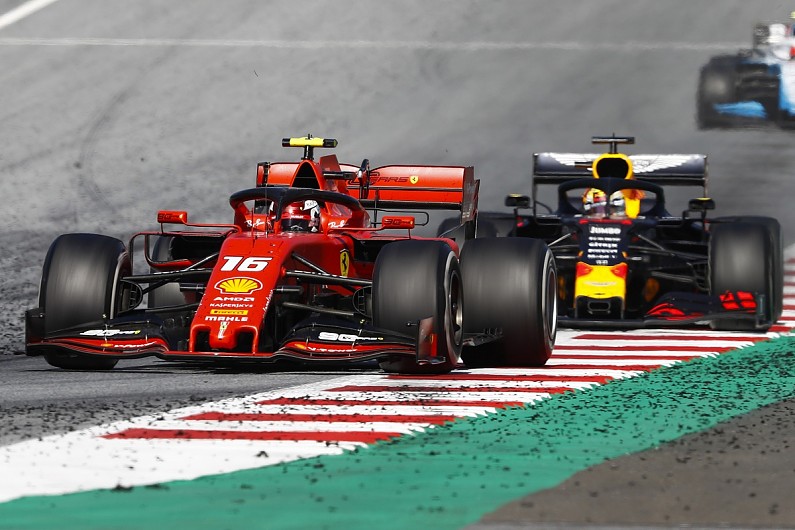The long wait to learn whether Max Verstappen had kept his Austrian Grand Prix victory was a result of various influencing factors, says FIA Formula 1 race director Michael Masi.
Verstappen beat Charles Leclerc to win the race at the Red Bull Ring but his race-winning move was placed under investigation as the two drivers made contact and Leclerc briefly went off-track.
The decision to take no further action was communicated at 7.47pm local time, more than three hours after the race ended.
Asked by Autosport to explain why the decision took so long, Masi said that it started with the incident occurring with three laps to go, giving little time to act before the end of the race.
“The primary part was we didn’t get going [with the stewards’ hearing] until 6pm, [because of] the various media commitments, the [television] pen and the post-race press conference,” said Masi.
“The hearing itself, give or take, was about an hour with all parties involved.
“The stewards deliberated, looked at other cases, precedents, and spoke between themselves.
“By the time you write the decision and then make sure there are no typos or anything in it and so forth, and then summon the teams back, delivering the decision to them, it quickly [adds up].
“Time flies a lot more when you’re sitting outside like all of us than it does when you’re sitting in the room.
“So it was just one of those things, they were considering absolutely everything.”
The decision followed two controversial calls at the previous two races in France and Canada.
In France, Daniel Ricciardo received two time penalties that dropped him out of the points almost three hours after the race ended.
The decision to punish Sebastian Vettel in Canada was made during the race and therefore even though Vettel crossed the line first, Lewis Hamilton inherited the win immediately and the result was clear.
Asked if something could be changed to prevent the winner changing beyond the race’s end, Masi admitted it was “tough” and pointed out that a problem uncovered in post-race scrutineering that results in disqualification can also change the identity of the winner.
“You want the right decision made, considering all the circumstances and all the factors that are around, and using as much as information as you have available,” he added.
Masi also suggested it was not correct to draw parallels to decision-making speeds in other sports.
“It’s just one of those nuances in this sport,” he said.
“We can’t blow a whistle and freeze everything, make a decision, and play on.
“We try wherever possible to have the podium be the podium, but when it’s the last two or three laps of the race, it does make it quite difficult.
“If it was something that happened on lap three I would have thought that if the stewards felt they had everything, they would have made a decision and it would have been ‘play on’.”
